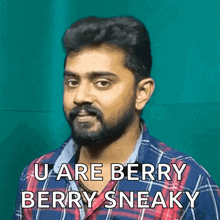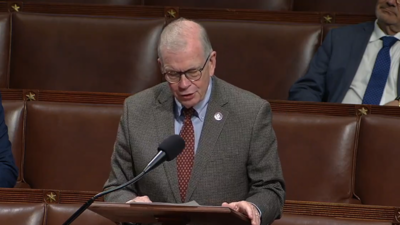Blady filthy dirty corrupt Idiotic Dodis supply fake medicines all over the world including Singapore.
Throw these bastards out.
I say it is not 25% fake medicines but 75%
How many have you taken?
https://www.indiatoday.in/health/st...MEDICINE FROM,the Indian domestic drug market.
Chalk in your tablet? How you can spot fake medicines
Medicines with a retail price of Rs 33 lakh were found to be just chalk and starch. An Assocham study says 25% of all medicines in India are fake, counterfeit or substandard. Doctors and chemists reveal how people can spot fake medicines and ensure they buy only genuine ones.
 Sushim Mukul
Sushim Mukul
New Delhi,UPDATED: Mar 8, 2024 13:17 IST
In Short
- Fake medicines include counterfeit, contaminated or mislabelled drugs
- Patients must pay attention to spelling errors on labels
- Buyers should be alert to the bottling and strip's appearance
- Purchase of loose tablets and capsules should be avoided
It was supposed to be medicines worth Rs 33 lakh.
What they, instead, turned out to be was just chalk and starch powder.
The seizure of fake medicines on Wednesday in Telangana during a raid isn't a one-off case. Fake medicines are a big malady in India.
Around 25% of India's drugs are fake, counterfeit or substandard, according to a 2022 study by industry body ASSOCHAM. ---- I say it is 100% fake
There is an intricate web producing and supplying fake and counterfeit medicines that pose a big threat to public health and well-being.
How do people ensure that they buy genuine medicine? Can buyers spot fake medicine when they are being handed a tablet strip or a bottle of syrup?
That is possible, say doctors and chemists, it is just that people need to be informed and cautious while buying medicine.
FAKE AND DEADLY MEDICINE FROM INDIA
The 2020 ASSOCHAM study 'Fake and Counterfeit Drugs In India –Booming Biz' revealed that fake drugs constituted $4.25 billion (Rs 352 crore) of the total $14–17 billion (Rs 14 trillion) of the Indian domestic drug market.
Since 2022, around 200 people, including children, have died in the Gambia, Uzbekistan and Indonesia after consuming cough syrups.
Subsequent investigations
linked the deaths to different drug manufacturers in India. The investigations linked the hundreds of deaths to "contaminated syrups".
On March 6, the Drugs Control Administration (DCA)
seized fake medicines containing chalk powder and starch, with a face value of Rs 33.3 lakh, in Telangana.
The officials found that the fake medicines were being sold by a non-existent company, Meg Lifesciences.
Following the seizure, all medicines from Meg Lifesciences were subjected to a "Spurious Drug Alert and Stop-Use Notice" from the DCA.
FAKE MEDICINES MORE PREVALENT THAN THOUGHT
Ever wondered about the authenticity of the quick-fix syrup we rush to after a light cold or the multiple tablets that people consumed during the Covid-19 pandemic?
Fake medicines are an umbrella category, which includes counterfeit, contaminated or mislabeled medicines, according to the Interpol DOs and Don'ts on 'illicit goods and shop safely'.
"Don't take the chance," says the article upfront.
Approximately 10% of medicines in low- and middle-income countries prove ineffective because they are substandard or falsified, says the World Health Organization (WHO).
Therefore, the prevalence of counterfeit medications is far more widespread than one might realise, making the identification of fake medicines really challenging.
HOW TO ENSURE YOU BUY GENUINE MEDICINE
However, some information and caution while buying medicines might help in spotting fake medicines and procuring only genuine ones.
"Firstly, tally the name of the medicine with the one prescribed. Patients must pay attention to spelling errors on labels, be alert to the bottling and strip's appearance, compromised packaging or any other deviations that don't look normal," NOIDA-based gynaecologist Dr Uma Mishra tells IndiaToday.In.
She also advises that the purchase of loose tablets and capsules should be avoided and one should try to go for a whole strip because it has all the required details.
That the devil can be spotted if attention is paid to the detail is also stressed by Amy Callanan of Pfizer, a global pharma giant.
Genuine medicines maintain a consistent appearance, and compromised packaging should raise concerns instantly, suggests Amy Callanan, a Global Intelligence Lead at Pfizer.
Another important thing to look out for is the spelling of medicine.
"Many a time, one will find an 'e' missing or an extra 'a' in the medicine's name," Dr Ashesh Bhushan of Yatharth Hospital in Noida tells IndiaToday.In.
A careful examination of expiry dates and batch numbers printed on all medicines is also crucial in spotting counterfeit medicines, according to Tarun Garg, who runs a pharmacy near the AIIMS New Delhi.
"To mitigate the risk of encountering counterfeit drugs, it is advisable to make in-person prescription purchases at reputed pharmacies," Tarun Garg of South Delhi Pharmacy tells IndiaToday.In.
The sale of fake medicine through online channels is increasingly becoming common.
HOW TO AVOID FAKE MEDICINES FROM ONLINE PHARMACIES
An online pharmacy was shut down by the Telangana Drug Control Administration (DCA) in Hyderabad in 2017, for violating drug sales rules.
Those buying medicine online should focus on the reliability of the e-pharmacies, as they have become a convenient way of channelling fake medicines, say experts.
Consumers should also be cautious of spam emails, lack of authenticity verification, poor grammar on the packaging, websites without a physical address, and suspiciously low-priced products, cautions the WHO.
Both generic and branded medicines can be fake, and it is information and alertness, says Dr Ashesh Bhushan of Yatharth Hospital.
Substandard and fake medical products can be visually indistinguishable from genuine ones and one should be alert while buying from chemists or online pharmacies.
PHARMA COMPANIES TOO ARE TRYING TO ROOT OUT FAKES
Fake medicines eat into the business and profits of pharmaceutical companies. So, big pharma companies, too, are upping the game in the identification of fake medicines through digital tracking systems.
"Not all but the big names like Natco Pharma, Dr Reddy's, Aureate Healthcare and Pfizer have rolled out medicine packages with QR codes," pharmacist Tarun Garg tells IndiaToday.In.
The QR codes on medicines used by cancer patients not only help the customer to ensure their authenticity but also help pharma companies to ensure they are not black-marketed, according to Tarun Garg.
With all the vigilance and regulatory safeguards in place, what should one do if they still get their hands on a fake medicine?
"Awareness is the key," Dr Ashesh Bhushan of Yatharth Hospital reiterated.
"As a vigilant customer, one can always go to the Drugs Control Administration (DCA) and even get their drugs tested, if suspicious", he added.
Getting medicines tested for authenticity, however, isn't commonplace.
WRONG MEDICINES A MAJOR ISSUE
It isn't just about fake medicines, wrong medicine is also a major issue. There are times, say doctors, when chemists have handed people the wrong drugs.
To eliminate wrong medications, the Supreme Court of India and the Medical Council of India also mandate digital prescriptions to have the names of medicines and their compositions in capital letters.
Many a time, a pharmacy might not have the prescribed medicine and the pharmacist hands over a substitute. "In that case, the patients must cross-check the substitute medicine with their doctor if it fulfils the desired composition," Dr Ashesh Bhushan tells IndiaToday.In.
He narrates an incident to caution about wrong medicines handed over by chemists.
"An elderly lady, well over 70, approached me shaking and experiencing tremors in her body, after a week of her initial consultation, Dr Ashesh Bhushan tells IndiaToday.In.
"She was diagnosed with a cough and cold and prescribed a cough syrup on her first visit to the clinic," he added.
It turned out, the lady was never given the syrup she was prescribed.
"Instead of cough syrup, the pharmacist handed her over a bottle of liver syrup, used to treat gas and stomach upset. And, she took the medicine for a week, like she was prescribed," Dr Ashesh Bhushan tells IndiaToday.In, the ENT head at Yatharth Hospital, Greater Noida.
The old lady suffered due to the wrong medication.
"Therefore, awareness is the key on the patient's part too", said Dr Bhushan, "be it while a doctor is prescribing, or a pharmacist providing a medicine".
With that said, safeguarding oneself from counterfeit and wrong medicines involves awareness, vigilance, and informed decision-making.
While there's more needed in terms of vigilance and a crackdown on spurious medicines, consumers can do their bit and be vigilant to ensure that what they are buying is genuine medicine and not chalk powder or starch branded as medicine.






